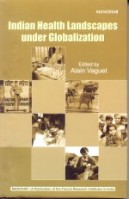Book Launch: Fresh Water in International Law

Tuesday 12 November 2013, 4.30PM
Indian Law Institute
Bhagwan Dass Road, New Delhi – 110001
Panel Chairs and Discussants
Hon’ble Justice Madan B.Lokur, Judge, Supreme Court of India
Prof. Ved P. Nanda, Professor of Law, University of Denver, U.S.A.
Prof. Dr. Manoj Kumar Sinha, Director of the India Law Society, Fresh Water in International Human Rights Law
Prof. Dr. Leïla Choukroune, Director of the CSH, Fresh Water in International Trade and Investment Law
University of Geneva, Faculty of Law http://www.unige.ch/droit/collaborateurs/?laurence_boisson_de_chazournes
Laurence.boissondechazournes@unige.ch
Mrs. Laurence Boisson de Chazournes is Professor of international law at the Faculty of Law of the University of Geneva and President of the European Society of International Law (ESIL).
She has gained a wide-ranging reputation in academic circles for her contribution to international law, in such fields as the law of international organizations, international economic law and international environmental law, while at the same time being recognized for her practical work as Senior Counsel to the World Bank and as advisor to many international organizations. She is a consultant and a member of groups of experts with various international organizations, including the World Bank, WHO, UNDP, ILO and UNEP. In the field of dispute settlement she has served as chairperson of WTO arbitration panels on pre-shipment inspections and has pleaded before the ICJ and other dispute settlement procedures. She is a member of the Permanent Court of Arbitration and member of the WTO indicative list of governmental and non-governmental panelists.
Her new book, Fresh Water in International Law, addresses the diverse ways in which international law governs the uses, management, and protection of fresh water. The international law of fresh water is most comprehensively understood in the light of the different bodies of norms applicable to these varied uses and functions.
The regulation of fresh water has primarily developed through the conclusion of treaties concerning international watercourses. Yet a number of other legal regimes also apply to the governance of fresh water. In particular, there has been an increasing recognition of the importance of fresh water to environmental protection. The development of international human rights law and international humanitarian law has also proven crucial for ensuring the sound and equitable management of this resource. In addition, the economic uses of fresh water feature prominently in the law applicable to watercourses, while water itself has become an important element of the trade and investment regimes. These bodies of rules and principles not only surface in an array of dispute settlement mechanisms, but also stimulate wider trends of institutionalization.
The book investigates the origin and scope of these bodies of norms as they apply to fresh water, and demonstrates how they connect and adapt to one another, forming an integrated body of international principles. This approach is accompanied by a detailed analysis of the practice of states and of international organizations, taking into account the activities of the many non-state actors involved in the treatment of fresh water
http://ukcatalogue.oup.com/product/9780199565085.do









